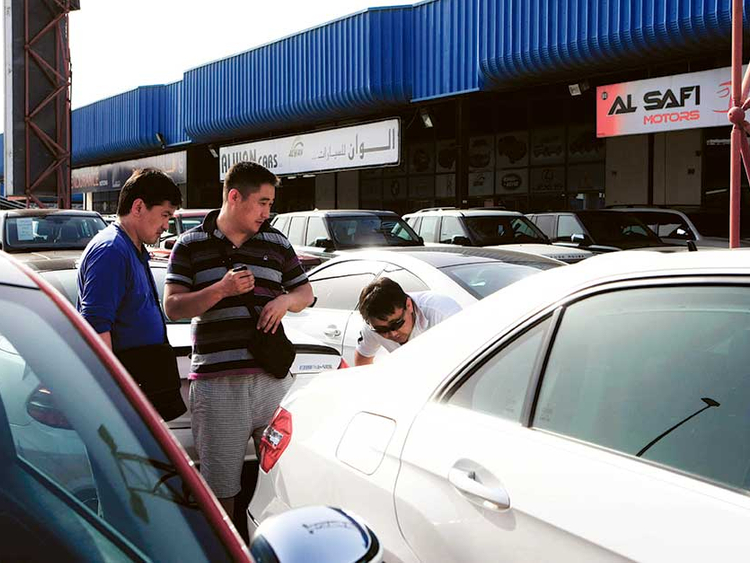There are few places on this earth as car mad as the UAE.
While new arrivals to the country may or may not enjoy driving in town during rush hour, there are scads of smooth, picturesque byways all over the region that will appeal to all but the most disinterested drivers.
Question is, what car will you buy to underwrite your new life in the UAE, and from where should you buy it?
We set down a few guiding principles for buying a new (or used) car on these desert shores.
BUYING NEW
More options
If you’re buying new, dealers will work with you to order or locate the right combination of engine spec, features, and interior and exterior colours.
The new factor
I suppose this goes without saying, but a new car is all yours to baby or otherwise sully as is your wont. There’s also no chance someone will have smoked in it, driven abusively, or damaged the car in an inscrutable (but later costly) way.
Warranty
Whatever the terms, the warranty will be fully intact when you take delivery. Now, not all warranties are created equal, but if you relish the peace of mind they do afford, then new may make more sense.
That said, the things that the desert is hardest on — batteries, floor mats, oil and fluids — typically won’t be covered.
Safety
Vehicle safety laws in the US and Europe, which still set the bar for global best practices, are becoming more and more stringent each year.
Newer cars are much more likely to offer stability control, tyre pressure monitoring, blind-spot monitoring systems, side curtain airbags, brake assist and more to keep you safer when on the UAE’s busy roads.
Again, this depends on where in the segment you’re aiming to buy.
The hunt
Buying a new car takes a lot less time poking around classified ads, dealing with random sellers, and canvassing sundry car lots.
Buying a new vehicle basically entails visiting your local dealership and then talking to a bank.
BUYING PRE-OWNED
Asking price
The secondary car market in Dubai is saturated with motivated sellers transitioning out of the country.
The other side of that is that there’s always a steady influx of newbies. All told, the best value for dirham is likely found in the used market, as long as you’re up for buying in with leg work and a certain amount of risk.
Depreciation
Time and kilometres both drive the price of most cars down.
Unless you happen to buy some rare supercar that turns out to be an appreciating asset, you can expect your vehicle to lose value after purchase.
That said, the largest depreciation in a car’s useful lifespan occurs the moment the initial buyer drives it off the lot.
Buying used has the advantage of letting someone else take the initial financial hit.
Maintenance
While your used car is less likely to come with free scheduled maintenance — though the benefit may be transferable if the original owner has time left in the contract — you will have more options in where you take your car for service, and that might save you money in itself.









